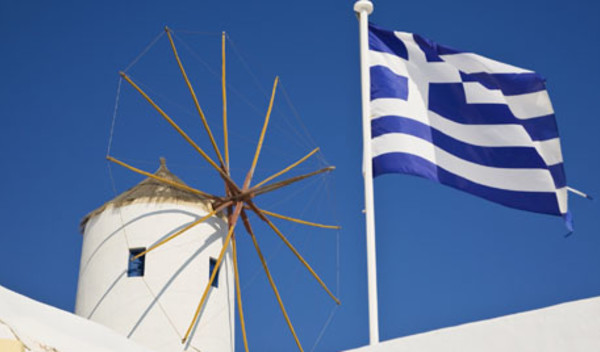

Back then the country voted with the creditors, and Europe’s most powerful institutions stood ready to do ‘whatever it takes’ to protect the currency bloc.
Those fateful words from ECB President Mario Draghi helped to stabilise the situation for a while, but now that those funds are due to be repaid, the problems that plagued Greece three years ago are once again coming home to roost.
This time the political stakes are even higher. Firstly, the radical left-wing Syriza government has ruffled feathers in Brussels and failed to bend to its creditors’ demands. Secondly, other European member states have successfully managed to exit bailouts, return to capital markets, pay back some of their creditors and return to growth. Ireland, and to lesser extent Portugal, do not want Greece to get off lightly and get more eurozone cash without having to endure the same stringent conditions that were applied to them.
The deadlock between Greece and Europe continues, but meanwhile the Greek banks are shuttered, capital controls have been imposed, medicines and other imports that Western countries take for granted cannot get through because they can not be paid for, and tourism has slumped. The crucial difference between now and 2012 is that now there is no appetite to do ‘whatever it takes’ to save Greece, which could have large ramifications for the future of the currency bloc as we know it.
Much focus has been on the Greek request for a bailout, which would total approximately €7bn (£5bn). While this dominates the rounds of Eurogroup meetings and EU summits that we have seen in recent weeks, the real problem is the Greek banking sector, which requires many hundreds of billions of euros to get back on its feet.
In recent months the banking system has been resorting to emergency liquidity assistance from the ECB. These funds used to have a stigma attached to them. However, by the time you have borrowed €130bn (£93bn), you are probably used to it. The ECB recently stopped increasing the amount of money available to Greece via the ELA, which is why the banks had to be closed and capital controls imposed.
The real decisions about whether Greece stays or goes may not be made in Brussels, but in Frankfurt, the home of the ECB. If the ECB asks Greece to start repaying the €130 bn of ELA funds then the banking system will more than likely collapse overnight, as it has no way of paying since there is less than €1bn (£718m) left in the banking system after a torrent of deposit withdrawals in recent months.
Can a country continue to remain in the eurozone if its banking system collapses and it has no means of external financing? How can one body, the ECB, set interest rates for a country without a financial system? For these reasons we think that Greece will find it very hard to remain in the currency bloc, especially since the ECB seems to have shown that ‘whatever it takes’ has its limits, and does not apply this time around.
But what would a Grexit look like? We think there are two potential scenarios for Greece – one messy and one graceful.
The messy scenario: The ECB demands ELA funds back, which Greece cannot pay, triggering the collapse of its banking sector. This leads to a deep economic recession, social instability and a hasty Grexit. The drachma is reintroduced, triggering an inflation shock, which leads to even worse unemployment and deep poverty. The Greek economy takes many years to recover.
The graceful scenario: The ECB agrees to fund the Greek banking sector for a number of weeks until the drachma can be safely introduced. It also agrees a schedule to pay back ELA funds, which protects the banking sector. The drachma is pegged to the euro and operated on a managed float until it can trade on its own. After an initial period of economic adjustment, growth returns and the financial system heals. Greece also returns to international capital markets after a specified period of time.
No one knows what the outcome will be, but it will no doubt be decided in the coming months. The other point to consider is contagion. So far there has not been much overspill to other European states with fragile financial positions, including Spain and Italy. This has helped to keep markets calm. The spread between German and peripheral bond yields has a positive correlation with the European stock index, the Eurostoxx index; so far others have experienced some weakness, but nothing that signals panic in the markets.
But if Greece has a messy exit from the currency bloc, which is not managed by the European authorities, it could cause problems for other countries. Italy could be next in the firing line, with more than a 100 per cent debt-to-GDP ratio. If Greece is allowed to exit the currency union disgracefully with its economic and financial system decimated, then it could make Italy’s and Spain’s political positions in the currency bloc more tenuous, which would surely spell the end of the eurozone in its current form.
The next few weeks will be pivotal, not only for Greece, but also for other eurozone members, as well as for global risk appetite. If Greece is not handled carefully at this difficult time, the fallout could be unimaginable.
Kathleen Brooks is research director at online trading company Gain Capital
(This article was written before the settlement agreed on Monday 13 July)
Key points
European institutions are no longer promising to do ‘whatever it takes’ to keep Greece in the euro.
A messy Grexit would spell a long-term economic recession for Greece.
A messy Grexit could also make problems for other weak eurozone countries such as Spain and Italy.



